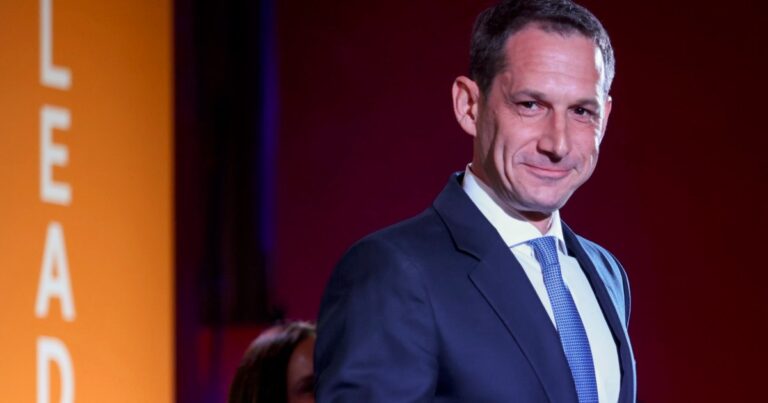Daniel Lurie’s Historic Campaign for San Francisco Mayor
Election Day in San Francisco witnessed a unique gathering at John’s Grill, where political insiders mingled, yet the frontrunner for mayor, Daniel Lurie, remained conspicuously absent.
A Tradition at John’s Grill
The gathering at John’s Grill, a longstanding Election Day tradition, attracted a large number of politicians and community figures. Former Mayor Willie Brown, at 90, was prominent as he engaged with attendees outside the venue. Brooke Jenkins, the district attorney poised for reelection, expressed optimism about continuing discussions surrounding retail theft.
The Absence of a Key Candidate
In contrast to the bustling crowd, Daniel Lurie’s absence was a calculated decision. While many political figures laughed and conversed, Lurie’s team, including campaign strategist Tyler Law and manager Han Zou, chose to remain outside the festivities, embodying a position of “outsiders.”
Insights from Lurie’s Campaign Team
Following the lunch, Law and Zou discussed Lurie’s unexpected rise, stating they never labeled themselves as outsiders—rather, they emphasized Lurie’s status as not being a City Hall insider. Lurie’s extensive philanthropic background through his organization, Tipping Point, established his name within the community, allowing him to connect with voters on a deeper level.
Campaign Strategy and Execution
Lurie’s self-financed campaign, totaling about $8 million, was strategically distinct from his rivals. Law pointed out that Lurie’s opponents applied a narrower focus, whereas Lurie operated a comprehensive political campaign, utilizing robust digital advertising from August onward and television spots shortly after.
Through a widespread ground game, the campaign knocked on over 220,000 doors, prioritizing outreach to Asian American voters. This targeted effort garnered significant first-round votes in neighborhoods with majority-Asian populations.
Seizing Opportunities
Key moments in the campaign included an influx of scandals surrounding Lurie’s opponents, which helped boost his visibility and strengthen the perception of him as a viable alternative. Lurie positioned himself as a reform candidate during a time when many constituents yearned for change within the political landscape of San Francisco.
Post-Election Analysis
The dynamics of the election were starkly illustrated when Lurie, by the end of the night, led Mayor London Breed by over 26,000 ranked-choice votes—a lead significant enough for Breed to conceed. The near absence of established city officials at Lurie’s victory gathering hinted at the shifting political winds and the unease among incumbents in the wake of his emergence.
Challenges Ahead
Should Lurie take office, he faces the daunting task of governing amid an $800 million deficit and various complex issues. He has indicated a willingness to shake up the established order, suggesting that existing department heads may need to reapply for their positions, bringing with it a sense of uncertainty among city insiders.
His remarks during the victory speech, promising collaboration with former opponents, reflected his intent to reform while striving for inclusivity amongst all city stakeholders.



